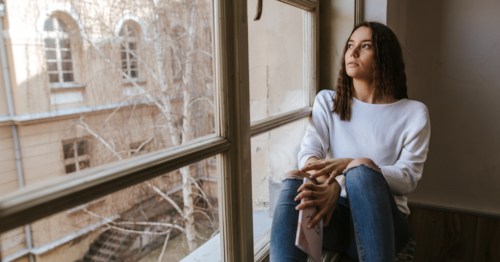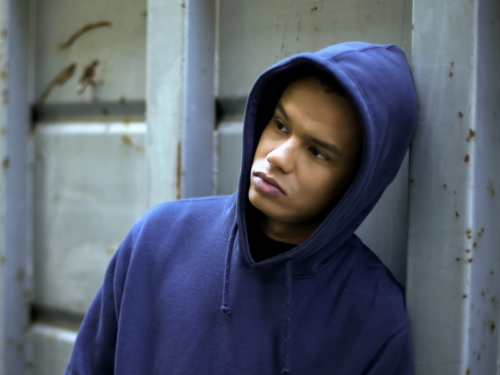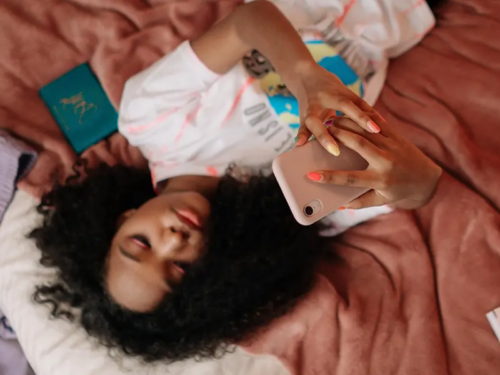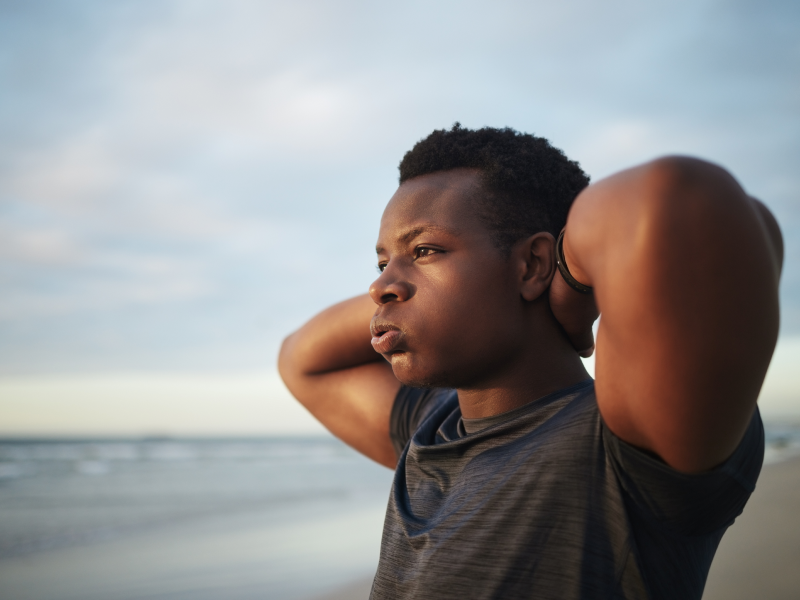
Table of Contents
Isolation and Anxiety: What’s the Connection?

Written By: Ethan Cohen BSN, RN

Clinically Reviewed By: Dr. Don Gasparini
February 3, 2023
9 min.
Isolation and loneliness can worsen mental health symptoms, including anxiety.
Learn more about our Clinical Review Process
Table of Contents
Human beings are social creatures. We crave connection and communication with others. Without this connection, many of us feel incomplete and begin to crave that feeling of belonging that helps give us a sense that we are a part of something greater than ourselves.
For teens and young adults, finding this feeling of belonging can be difficult. The teenage and young adult years are a time of self exploration and growth, and during this time, young people are not only figuring out how they relate to themselves, but also how they relate to the social world around them.
Join the Charlie Health Library
Get mental health updates, research, insights, and resources directly to your inbox.
You can unsubscribe anytime.
Undoubtedly, due to the effects of the COVID-19 pandemic, worsening gun violence throughout the country, climate change, and the ever present evolution of social media and its ability to change the way we communicate and interact with one another on a daily basis, now more than ever, children and young adults are facing social challenges of historic proportions.
What is social isolation?
Being alone or taking some time for yourself is not always a bad thing. Going for a nice solo walk, relaxing at home and binging your favorite show after a long night of doing schoolwork, or simply giving yourself a break from social interactions can at times be refreshing and inspiring.
On the other hand, social isolation refers to the type of solitude that is unwanted or unhealthy. If experienced over an extended period of time, social isolation can leave a person feeling lonely, anxious, depressed, and unwanted. It should be noted that loneliness refers to the subjective feeling of being alone, while social isolation refers to the absence of contact with other people.
This distinction is important because it is possible for people to experience loneliness even when engaging socially on a regular basis with the world around them. Research shows a strong link between social isolation and an increased likelihood of anxiety and depression in children and adolescents.
Symptoms of unhealthy social isolation:
- Avoiding social interactions, including those that were once enjoyable
- Canceling plans frequently and feeling relief when plans are canceled
- Experiencing anxiety or panic when thinking about social situations
- Feeling distress during periods of solitude
- Feeling dread associated with social activities
- Spending large amounts of time alone or with extremely limited contact with others
Social anxiety disorder
It is normal for someone to occasionally cancel plans with friends because they just do not want to go. Maybe you are just too tired. Maybe you are not in the mood to deal with a large group of people at a party that night. It is okay to choose rest over socialization from time to time. That being said, if you are avoiding social obligations due to a fear of being judged by others, are feeling overly self conscious, and find that these feelings and lack of desire to connect with others persists for more than six months, it is possible that you are suffering from one of the most common anxiety disorders, social anxiety disorder, also known as social phobia.
Symptoms of social anxiety disorder:
- Blushing, sweating, trembling during or when thinking about social situations
- Rapid heart rate
- Feeling your mind “going blank” or feeling sick to your stomach
- Having a rigid body posture, or speaking with an overly soft voice
- Difficulty making eye contact
- Feeling self conscious or fearing negative judgment from others
- Avoiding places where there are other people
Do you need more support with
your mental health?
Charlie Health can help.
For people with social anxiety disorder, socially isolating can feel like the only way to avoid their negative feelings. Unfortunately, continued social isolation can cause larger problems, so if you identify with any of the information presented above, it is important to reach out to a mental health provider as soon as possible. Charlie Health has trained professionals that can help. Click the link here to explore your options.
The cycle of isolation and anxiety
Isolation can be both a cause and a symptom of anxiety. If a person is experiencing anxiety, they may be less likely to engage socially with the world around them and begin to isolate. Due to their anxiety, they may feel like social interactions could be too overwhelming for them and choose to avoid them altogether. Maybe they do not feel like the best version of themselves and do not want to expose other people to that version of themselves. In this scenario, the person’s anxiety is driving them away from engaging with the outside world, which results in social isolation and loneliness. This situation is most evident in individuals who suffer from social anxiety disorder.
Unfortunately, according to a survey by the National Institute of Health, one in three adolescents ages 13-18 will experience an anxiety disorder at one point, and alarmingly the rate of hospitalizations for suicidal teenagers has doubled over the past several decades. One of the proposed causes of the rise in anxiety in the adolescent and teen population is an increase in social isolation.
To make matters worse, as the social isolation increases, so do the feelings of loneliness, low self-esteem, anxiety, and fear. This situation highlights the positive feedback loop of social isolation and anxiety, wherein both the isolation and the anxiety feed into one another, and can leave the person feeling helpless and incapable of breaking the vicious cycle.
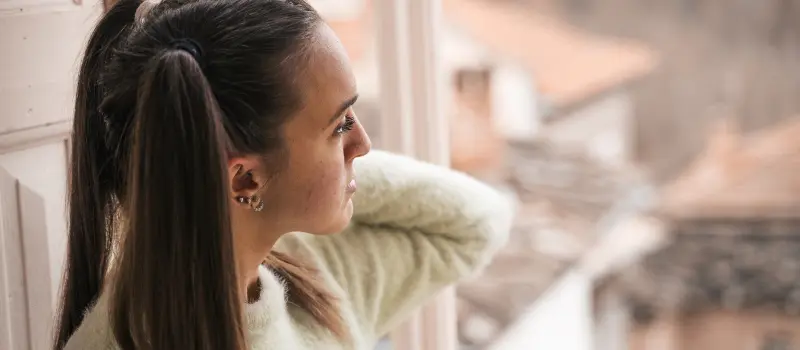
Social media, isolation, and anxiety
While social media is a tool for communication and connection, a substantial amount of research has been conducted over the past several years that highlights the negative effects of social media usage in the teenage and young adult population. According to the American Academy of Child and Adolescent Psychiatry, the average teen spends 8 hours and 39 minutes a day engaged in screen time. Experts have found an increase in sleeplessness, loneliness, and worry in young people that have increased screen time.
An article from the Harvard Graduate School of Education highlights the complicated relationship between anxiety and social media, noting that “the connection between anxiety and social media might not be simple, or purely negative. Correlation does not equal causation; it may be that depression and anxiety lead to more social media use, for example, rather than the other way around.”
When considering the relationship between social isolation, screen time, and anxiety, it is obvious that teens, young adults, and their caregivers must proceed with caution and intention when considering how and when they are using their smartphones. While using technology as a tool to connect with others can be helpful at times, there is a scenario in which the continued reliance on social media and other forms of technological communication and connection can become problematic, especially if it becomes the primary means of communication and connection as opposed to real life, in-person connection.
The effects of isolation during the COVID-19 lockdowns
While the intensity of the lockdowns that we all experienced during the first year of the COVID-19 pandemic have dissipated, the long lasting effects of the isolation experienced during that time period is yet to be fully understood. What we do know is that during that time period, the National Alliance on Mental Health noted an increase in anxiety and depression in school aged children, which they attribute to the isolation and loneliness experienced during the lockdowns. Furthermore, research from the University of Amsterdam showed that young adult’s mental health was more severely affected by the pandemic lockdowns than the general population, and that this was most evident in an increase in anxiety and sleep disturbances for those young people.
Dr. Breuner, a spokeswoman for the American Academy of Pediatrics, highlights the long term effects of the lockdowns on young people, stating that “individuation and development of independence is thwarted or slowed way down when they’re sitting at home all day with parents in the next room.” Children and young adults depend on friendship and social connection to develop a sense of self-worth and to help manage anxiety and depression. The pandemic created a situation in which the important resource of real life connectedness with peers was not available for a substantial amount of time.
Also, it should be noted that post-lockdown anxiety is a very real phenomenon. An article for Tulane University’s School of Public Health and Tropical Medicine explains that “fears can also be triggered by the change itself. Leaving the relatively secure and stable environment of one’s home introduces uncertainties and disrupts routines that many people have integrated into their ‘new normal.’
” The real question is, how do we manage to return to some semblance of normalcy when it comes to our relationship with our mental well-being after experiencing such a difficult time due to the challenges of the pandemic over the past several years?
Tools to fight anxiety and social isolation
No matter the reasons why you find yourself socially isolating, there are tools that you can employ to help avoid falling into the cycle of anxiety and loneliness. While it may feel like an insurmountable task to actionable steps that get you out of the familiar routine of solitude, the payoff will be well worth the initial discomfort that you will experience.
Avoid negative coping strategies
While it may seem like an easy solution to lessen your anxiety and become more willing to get out into the world around you, engaging in activities such as drinking alcohol or taking drugs is not the answer. In fact, research has shown that after the initial calming effects of drinking alcohol have subsided, the hangover will actually result in heightened anxiety and other related symptoms. Instead of choosing to sip on a beer or a gin and tonic as a ‘social lubricant’, try a club soda with a splash of cranberry juice. No one will know the difference.
Put down your phone and join the party
One of the best things that you can do for yourself when experiencing anxiety and social isolation is to actually do the best you can to get out there and try to socialize with other people. With the guidance of a licensed therapist, or with the support of your close friends, or both, you can reorient yourself to the reality of social connection and closeness. While it may seem overwhelming and uncomfortable at first, ideally you will eventually be reminded of how much you actually benefit from letting down your guard and joining in. This gradual reintroduction to social interaction can be seen as a type of exposure therapy. If you suffer from heightened physiological symptoms due to your social anxiety, such as increased heart rate, palpitations, or fainting, it is best to make a plan to reorient yourself to the social world with the guidance of a licensed therapist.
Practice mindfulness techniques
Deep breathing and other mindfulness techniques can help bring you back down from the ledge of anxiety, fear, and other overwhelming emotions that are keeping you in self-isolation. With practice, you can use these mindfulness techniques to help lessen the discomfort you may experience when trying to socialize again after being isolated for an extended period of time.
Get the help you need
If you are in need of help, all you have to do is ask for it. It’s more likely than not that there is at least one person out there who is willing to help you on your journey toward getting back out into the world. More often than not people are happy to help another person due to the fact that it actually makes them feel better themselves to know they are doing something good for another person.
How Charlie Health can help
If you are having a difficult time socializing, and are considering the possibility that you may have social anxiety, are fearful and anxious about the state of the world, or are finding it challenging to reorient yourself to social life post-pandemic for whatever reason, there is help available at Charlie Health with our virtual intensive outpatient program. There are countless reasons why a person may find themselves self-isolating.
Maybe you are dealing with a difficult period of grieving after the loss of a loved one. It is possible that you are unsure about whether or not your feelings of fear and anxiety about the world around you constitute a problem worth addressing with a licensed professional. There is no doubt that we are living in uncertain times, but there is no need to be uncertain about whether or not there is help available to aid you in better understanding your situation.
Reach out to Charlie Health here to get started on your journey toward a fuller and brighter social existence.

